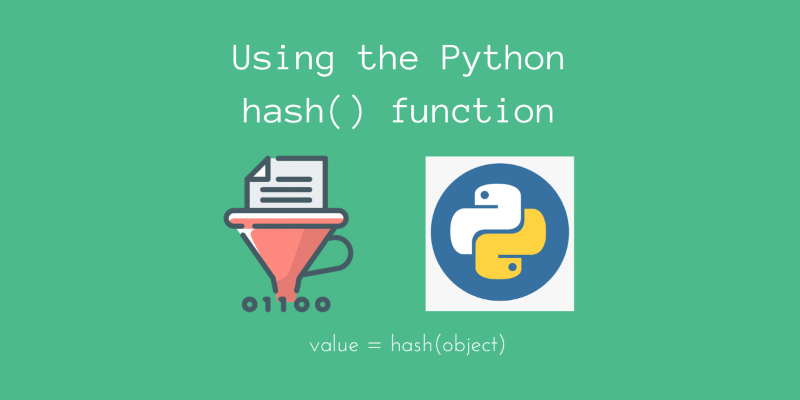Advertisement
Leading worldwide in analytics and artificial intelligence (AI), SAS has taken a revolutionary step in acquiring a synthetic data generator. With this purchase, SAS will be able to improve its AI capacity and provide more potent solutions to customers in many different sectors, thus advancing AI development. An increasingly important tool in AI training and testing is synthetic data—that which is created to replicate real-world data.
It enables one to overcome obstacles, including data privacy issues, restricted access to actual data, and the necessity of large datasets. SAS wants to hasten the creation of better, more efficient artificial intelligence systems by including this innovative technology. This article will discuss the reasons this transaction is so important and examine how it will impact data-driven industries.

Synthetic data, sometimes known as artificially produced data, is modeled after real-world data without explicitly referencing actual information. Simulations and algorithms produce it, therefore emulating the characteristics and organization of real-world datasets. When real data is costly, difficult to collect, or poses privacy issues, this method is particularly helpful for teaching artificial intelligence models.
Synthetic data, for instance, can imitate many situations, allowing artificial intelligence systems to be evaluated without compromising private or sensitive information. This ability is crucial in fields like finance and healthcare, where privacy regulations are strict. Regarding SAS's most recent acquisition, the synthetic data generator lets the business create plenty of synthetic data catered to particular requirements. By means of training, validation, and improvement of machine learning models derived from these datasets, developers can aid in honing AI systems.
Large volumes of data are necessary for training AI algorithms. The accuracy and performance of the AI system depend directly on the quality of the used data. Gathering excellent, real-world data might be difficult. Privacy issues, data access restrictions, or the sheer volume required to teach sophisticated models could all be involved. Synthetic data provides a means of addressing these difficulties. It creates reasonable datasets that are fit for use in model testing and training. It accelerates development timelines and raises AI accuracy as well.
Moreover, synthetic data can assist in solving problems with bias in AI models. Different datasets help developers guarantee that their models encounter a broad spectrum of possibilities and results. This results in more strong and fair AI systems, lowering the possibility of inadvertent prejudices. SAS's acquisition of a synthetic data generator will probably help their customers enhance AI training methods, guaranteeing better and more consistent outputs.
One of the main benefits of synthetic data is its capacity to respect privacy. Sensitive material, including personal identification, financial records, and health data, abounds in real-world data. Using or distributing this information for artificial intelligence training seriously compromises privacy. Synthetic data, on the other hand, is completely manufactured and devoid of personal information. Hence, it raises fewer privacy issues. It replicates data characteristics without disclosing any actual identities or private information.
Synthetic data changes sectors like banking and healthcare, where tight privacy rules apply. Companies can teach artificial intelligence models synthetic data that reflects real-world conditions without infringing privacy regulations such as GDPR or HIPAA. This is a vital step in fields where safeguarding consumer data is absolutely vital.
Real-world data helps artificial intelligence models to improve continually. However, it can be challenging to get enough pertinent information to keep high performance. Synthetic data generates extra datasets to improve model training, therefore helping to close this gap. Synthetic data can replicate many real-world scenarios with the correct tools, hence enhancing the accuracy and adaptability of artificial intelligence models.
By acquiring a synthetic data generator, SAS can provide AI developers with more choices for bettering their models. These days, they can replicate particular environments, situations, and data kinds to evaluate how artificial intelligence systems fare under different settings. Using synthetic data will allow SAS to provide customers with more adaptable solutions for improving their artificial intelligence systems and guaranteeing they operate in various contexts.

The acquisition of SAS could have broad consequences in many different sectors. Let's investigate in several important industries how synthetic data will be applied:
Data security and privacy are vital in the medical field. Synthetic data can let academics and healthcare professionals create AI-driven solutions without violating patient confidence. It enables training AI models on reasonable medical data without involving private patient data access. While guaranteeing rigorous privacy compliance, this could result in innovations in tailored medication, diagnostic tools, and treatment plans.
Another sector that gains from synthetic data is financial data. Without real customer data, banks and insurance firms may create and test fraud detection systems, credit scoring models, and customer service artificial intelligence using synthetic data. It guarantees that the AI models are not educated on biased or incomplete datasets and lowers the possibility of data breaches.
Autonomous cars mostly depend on artificial intelligence to navigate and react to real-world events. Synthetic data can replicate several driving circumstances, including road dangers, traffic situations, and weather variations. Developers can test and train AI systems for autonomous cars in a controlled, safe environment. It helps improve performance and safety before the cars are on the road.
Synthetic data allows retail stores to improve consumer experience through artificial intelligence (AI). AI can, for example, suggest goods, project trends, and maximize inventory control. Synthetic data allows stores to test AI models without depending on actual consumer data, therefore preserving privacy while increasing operational efficiency.
With SAS acquiring a synthetic data generator, artificial intelligence technology will be much more advanced. Using synthetic data will enable the business to help solve issues with data privacy, access, and artificial intelligence model bias. By allowing more accurate, safe, and equitable AI systems, this action will help many sectors, from retail and banking to healthcare and industry to autonomous cars. Synthetic data promises to speed up innovation and enhance the performance of AI models as it becomes more common in AI research. It also helps guarantee privacy and compliance while expanding the possibilities of what artificial intelligence can achieve.
Advertisement

How to create an AI voice cover using Covers.ai with this simple step-by-step guide. From uploading audio to selecting a voice and exporting your track, everything is covered in detail

Learn how to convert strings to JSON objects using tools like JSON.parse(), json.loads(), JsonConvert, and more across 11 popular programming languages

Jio Brain by Jio Platforms brings seamless AI integration to Indian enterprises by embedding intelligence into existing systems without overhauls. Discover how it simplifies real-time data use and smart decision-making

Looking for the best AI resume builders? Check out these 10 free tools that help you craft professional resumes that stand out and get noticed by employers

Learn how Intel Core Ultra CPUs use advanced neural processing to unlock faster and more responsive AI experiences on PC.

Learn how logic gates work, from basic Boolean logic to hands-on implementation in Python. This guide simplifies core concepts and walks through real-world examples in code

Learn seven methods to convert a string to an integer in Python using int(), float(), json, eval, and batch processing tools like map() and list comprehension

SAS acquires a synthetic data generator to boost AI development, improving privacy, performance, and innovation across industries

Anthropic faces a legal battle over AI-generated music, with fair use unlikely to shield the company from claims.

Learn how AI parameters impact model performance and how to optimize them for better accuracy, efficiency, and generalization

Learn about Inception Score (IS): how it evaluates GANs and generative AI quality via image diversity, clarity, and more.

Discover how Getty's Generative AI by iStock provides creators and brands with safe, high-quality commercial-use AI images.